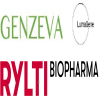Dive Brief:
- Roche AG reported full-year sales Thursday morning of 53.3 billion Swiss francs ($57.3 billion), up 5% year-over-year on a constant currency basis. The pharmaceutical division accounted for more than 41 billion Swiss francs ($44 billion).
- Most of the Swiss pharma's key drugs beat expectations, but the company attributes growth to its PD-L1 inhibitor Tecentriq and its new multiple sclerosis drug Ocrevus, which brought in 487 million Swiss francs ($524 million) and 869 Swiss francs ($934 million) in 2017, respectively.
- Roche said it would get a meaningful boost from U.S. tax changes, too. CEO Severin Schwan told analysts Thursday that Roche was "one of the biggest U.S. taxpayers." The company paid a tax rate of 26.6% in 2017 and expects it to be in the "low twenties" in 2018.
Dive Insight:
'New product launches' was the buzz-phrase for Roche during its fourth quarter earnings call on Thursday morning. Schwan emphasized in his comments that recently launched products would help minimize the impact of biosimilar competition to its key products like Rituxan (rituximab), Avastin (bevacizumab) and Herceptin (trastruzumab), which combined brought in more 20 billion Swiss francs ($21.5 billion) in 2017.
"This is a good news story. The new launches are largely driving our growth," said Roche Pharmaceutical Division chief Daniel O'Day, indicating nearly 80% of growth has come from recently launched products like Tecentriq (atezolizumab), Alecensa (alectinib) and Ocrevus (ocrelizumab), which each grew more than 100%.

"We've had stellar launches and that gives me the confidence that we will grow through this biosimilar transition," added Schwan.
There are currently two Rituxan biosimilars available worldwide and Roche expects as many as five Herceptin copycats to enter the market next year. But execs reassured analysts on the call that the declining sales of these key products is built-in to expectations.
The company has been touting the strength of its science as the key to growing its newest products. For example, Ocrevus was the first (and still the only) multiple sclerosis drug to be approved by the Food and Drug Administration for the progressive form of the neurodegenerative disease. Roche also boasted of its 19 Breakthrough Therapy Designations.
Schwan noted during the Q&A the company has been doing a lot of restructuring in both its manufacturing structure and salesforce. He said the company needed to close certain plants to move away from small molecule production and build up large molecule manufacturing, while new therapeutic areas like multiple sclerosis and hemophilia have required a shift in the sorts of sales reps the company employs.
Schwan emphasized Roche has been moving funds from more mature products to help support the launches of the newly launched products in order to keep down costs.
Despite beating analyst expectations and showing key products could help reduce erosion from competition to its largest products, American depositary shares of Roche were down in morning trading in the U.S. Many big pharmas have seen this effect despite reporting solid earnings during the quarter.
Some industry watchers are attributing the pushback from investors to high expectations — the industry was expected to see even more of an impact from U.S. tax code changes than companies have been announcing so far. So far, AbbVie Inc. is the only company to announce a new tax rate below 10%, while peers like Eli Lilly & Co. and Pfizer Inc. gave estimates for 2018 in the high-teens.








